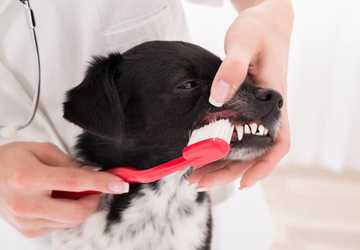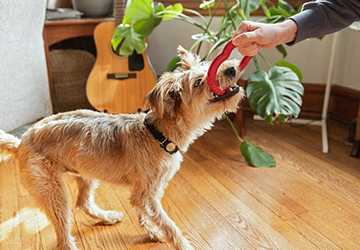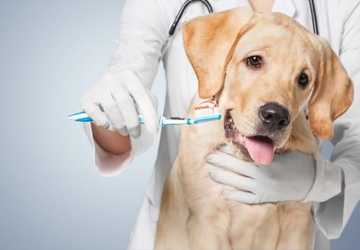6 Tips to Maintain Your Pet’s Dental Health: Importance of Oral Care
As a pet owner, you want your furry companion to live a long and healthy life. However, poor dental health is very common in pets and can have serious consequences like pain, infections, tooth loss and shortened lifespan.
It's up to you to take charge of your pet's oral hygiene through regular dental care. Simple new steps make a huge difference by fighting plaque, tartar and disease. With a little effort, your pet will gain cleaner teeth, healthier gums, and excellent overall wellbeing.
This article provides 6 easy yet essential tips to maintain your pet's dental health. From tooth brushing to veterinary cleanings, we equip you with the key information to care for those canine chompers and pearly whites. Let's get started!
6 Tips to Maintain Your Pet’s Dental Health
As your pet relies on you for their dental hygiene, here are 6 straightforward but powerful methods to keep their mouth clean and healthy:
1. Brush Frequently for Cleaner Teeth

Brushing your pet's teeth regularly impedes plaque accumulation and tartar formation that spur gum illness. Strive to brush at least 2-3 times weekly to reap these protective benefits.
Invest in a pet toothbrush and toothpaste. Introduce brushing slowly and make it a positive experience with praise and treats. Focus on brushing outer tooth surfaces.
Here are some quick brushing tips:
● Use calm, gentle motions
● Build up to brushing for 1-2 minutes
● Reward good behavior with tiny treats during and after sessions
With frequent brushings, you'll keep your pet’s smile sparkling and gums much healthier.
2. Offer Dental Chews for In-Between Cleanings
Veterinarian approved dental chews help care for your pet’s teeth between brushings. These specially designed treats scrape away tartar and plaque as your pet chews. This helps dislodge debris even in hard to reach back teeth.
Tips for using dental chews:
● Give chews 1-2 times per day between meals
● Watch pets closely to ensure vigorous chewing
● Choose size appropriate for your pet
● Replace chews as soon as wear shows
Using VOHC approved dental chews in addition to brushing gives your pet a one, two punch against plaque and tartar for cleaner teeth and healthier gums.
3. Feed Dental Diet Food for Passive Cleanings
Specialty pet food includes dry kibble and treats made to improve dental health as your pet eats. These diets feature shapes, textures, and ingredients that physically scrub teeth while chewing to disrupt plaque before it becomes tartar.
Tips when feeding dental diet:
● Select VOHC approved formula for your pet’s needs
● Transition slowly to new food over 5-7 days
● Provide dental food for staple meals whenever possible
● Supplement with chews and brushing
Feeding dental diet food reduces plaque and tartar buildup passively during meals, a big oral health benefit.
4. Schedule Veterinary Dental Cleanings
Even with diligent at-home care, professional veterinary cleanings are still needed. Vets have the tools to clean below the gumline, removing mineralized plaque in ways you can't at home.
How often cleanings are needed varies based on risk factors. Typically once yearly, but pets with diseased gums or plaque issues may need more frequent cleanings.
When you bring your pet in, here's what to expect:
● Oral exam of teeth, gums, tongue etc.
● Tooth scaling above and below gumline
● Polishing for bright, shiny teeth
● Antibiotics if infection is present
Veterinary cleanings thoroughly remove plaque and identify existing oral disease early. Follow your vet's recommendation on timing for your pet’s best smile.

5. Use Oral Rinses to Fresh Breath
Oral rinses act as therapeutic mouthwash solutions for pets to reduce bacteria growth, fight plaque, and freshen bad pet breath. These liquid solutions contain antiseptic ingredients like chlorhexidine to disrupt debris, germs, and clear minor infections.
Depending on your pet’s needs, oral rinses may be recommended for:
● Fighting periodontal infections
● Reducing plaque accumulation
● Freshening breath
When properly prescribed by your veterinarian, oral rinses can provide antimicrobial protection supporting healthier teeth and gums.
6. Monitor Diet and Behavior for Healthy Teeth
Your pet’s diet and chewing habits impact oral health. Feeding people food or carb heavy treats invites trouble by increasing plaque and bacteria.
Support dental health by:
● Feeding a balanced, clinical diet
● Avoiding excess human foods,carb treats
● Redirecting chewing to appropriate toys
● Scheduling check ups for behavior monitoring
Though less glamorous than brushing, monitoring diet and daily behavior works hand in hand with direct home care for your pet’s quality of life and dental wellbeing.
Conclusion
Caring for your pet’s teeth is one of the kindest and most helpful things you can do for their health. While essential, it doesn’t need to take a lot of time.
By implementing a few simple dental care tips into your regular schedule, you can significantly improve your pet’s oral hygiene and keep their smile sparkling. Monitor your pet’s food, habits and veterinary cleanings too for full protection.
Your furry friend is counting on you to set them up for lifelong wellbeing. Here’s to many more years of tail wags, face licks, and toothy grins!
Frequently Ask Questions
Q. How often should you brush your pet's teeth?
Ans. You should brush your pet's teeth 2-3 times per week at a minimum. For some pets, daily brushing is possible if introduced slowly and made a positive experience over time.
Q. What is the best toothpaste to use when brushing your pet’s teeth?
Ans. Use a pet specific toothpaste without fluoride, which is unsafe if swallowed. Pet toothpastes come in appealing flavors like chicken and are formulated not to foam.
Q. What should you do if your pet won’t let me brush their teeth?
Ans. Start with baby steps like letting them taste the toothpaste or rubbing their outer teeth. Attempt very short 10 second brushing sessions with lots of praise and treats before building up slowly. Consider dental treats or wipes for resistant pets.





